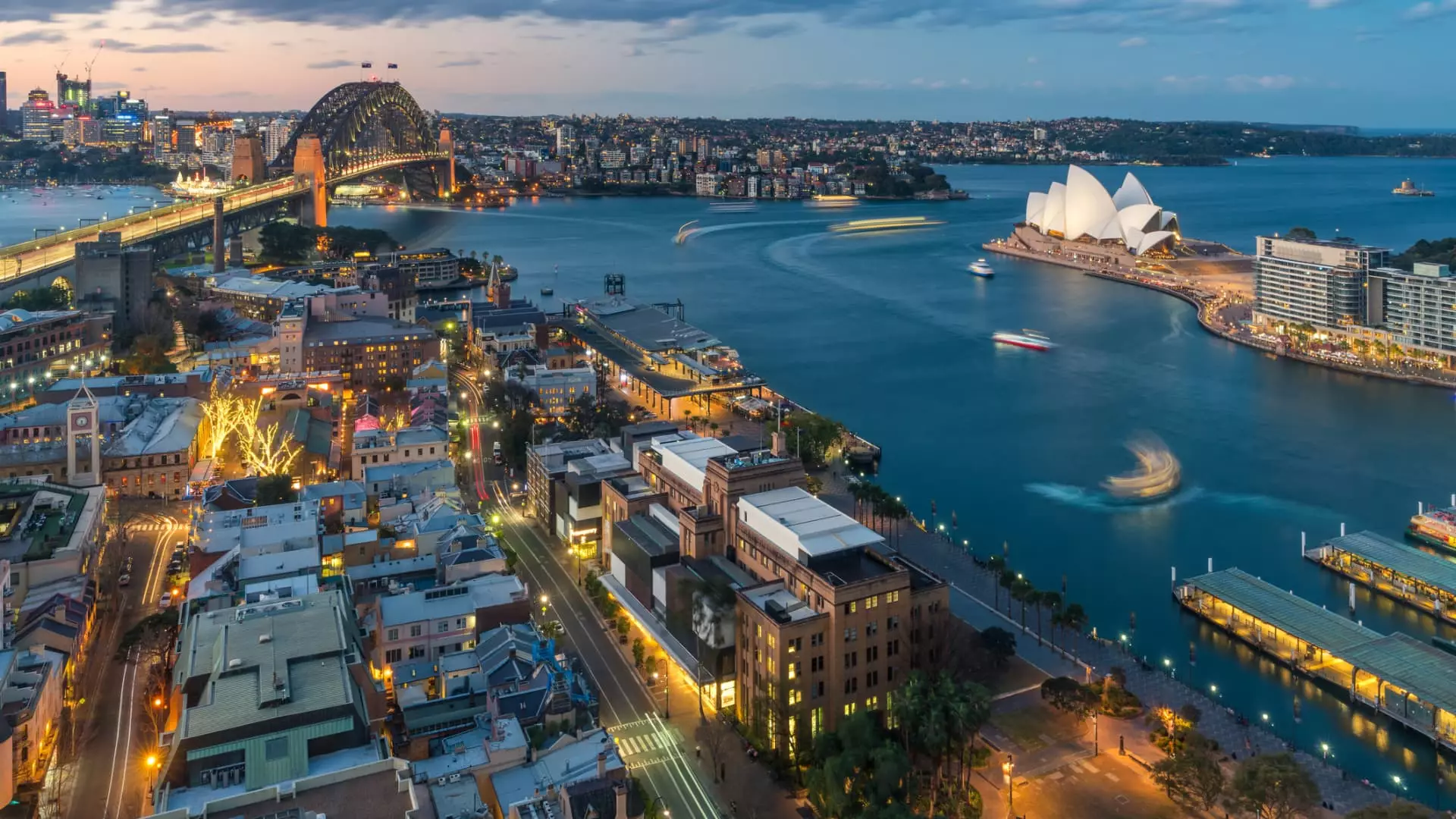In an era where economic stability often teeters on political rhetoric, global markets are increasingly revealing their vulnerability to the unpredictable whims of leadership. The recent confirmation by U.S. President Donald Trump that tariffs will be enforced starting August 1st underscores a dangerous trend: economic diplomacy is increasingly being weaponized, threatening the delicate balance that underpins international trade. Markets across Asia-Pacific responded with caution, reflecting a deep-seated anxiety that this escalation might stifle growth and destabilize economies already grappling with geopolitical uncertainty.
The initial optimism that characterized the recovery from recent downturns is swiftly eroding. Major indices in Japan, South Korea, and Australia dipped, not because of fundamental economic weakness but due to the pervasive fear of policy-led upheavals. This volatility underscores a troubling reality: markets are now tethered more to political statements than to concrete economic data. The fact that the enforcement date for tariffs has shifted from July to August, with officials suggesting additional renegotiation time, signals a fragile and uncertain landscape—one where diplomacy appears to be slipping away from rational negotiation into brinkmanship and brink retreat.
Economic Policy as a Political Weapon
This escalation exemplifies a larger, perhaps more insidious issue: the weaponization of economic tools for political gain. While some may view tariffs as leverage to secure better trade agreements, the broader consequence is a stifling of global economic cooperation. As the U.S. government signals willingness to impose tariffs without a definitive resolution in sight, it exacerbates a cycle of retaliation that could severely impact manufacturing, consumer prices, and international investment.
In this context, central banks face a dual challenge. The Reserve Bank of Australia, for instance, prepares for an interest rate cut amid market jitters, attempting to cushion the blow from these trade tensions. Yet, monetary policy alone cannot offset the global repercussions of tense trade negotiations. Instead, it risks sending mixed signals—an attempt to stabilize while political tensions threaten to unravel economic progress.
The Illusion of Resilience and the Cost of Complacency
Despite the cloud of uncertainty, some local markets attempted to cling to gains, driven by corporate earnings and hope for a robust third quarter. But this apparent resilience is deceptive, masking underlying fragility. The recent rally, led by strong performances in banking and tech sectors, risks becoming a fleeting mirage if the geopolitical climate remains volatile.
Furthermore, such market behavior reveals a troubling complacency among investors and policymakers. The optimism that markets can withstand ongoing trade conflicts presumes a level of resilience that may not exist. When political decisions threaten to escalate into economic crises, it becomes clear that the foundation of global stability relies on more than just market sentiment—it demands genuine international cooperation, something that appears increasingly elusive in today’s climate.

Leave a Reply